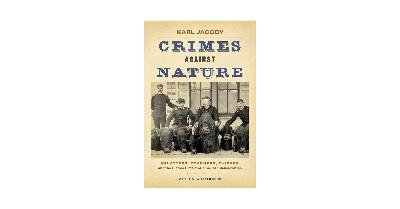Discover American Writers (One Hundred Pages at a Time)
American Writers (One Hundred Pages at a Time)

1064 Episodes
Reverse
The finale of my review of James C. Scott's "The Art of Not Being Governed". This part of the book focuses on kinship and the role of leadership in millenarian movements as part of the strategy of state evasion.
Next up: James Scott's modern classic, "Against the Grain"
Part two of my review of James C. Scott's history of upland Southeast Asia (Zomia), from the perspective of those who intentionally evaded states. In this part of the book we move from the strategies of states to the strategies of evasion. What do you think the most useful strategies for evading states in today's world.
The first part of my review of Scott's masterpiece on upland Southeast Asia, The Art of Not Being Governed. So many of his ideas come together into this indispensable book. In this first part we will learn about Zomia and the creation of geographical spaces outside of the machinations of states.
The finale of my review of James C. Scott's Seeing Like a State. The last few chapters of this excellent book explore the experiments in agrarian high modernism and then explores metis, or embedded knowledge and the capacity of resilience against the designs of high modernist states.
In part two of my review of Seeing Like a State by James C. Scott, I explore the dangers of high modernism and some of the case studies of failed experiments he examines. What is your favorite example of high modernism going wrong, besides the opening night of The Rites of Spring?
As we continue our exploration of the works of James C. Scott, we move from the arts of resistance to the designs of a state with faulty vision. How do states see, how do they envision transformation, and how do these two things together fail us?
In this episode I complete my reading of James C. Scott's DOMINATION AND THE ARTS OF RESISTANCE: HIDDEN TRANSCRIPTS. In this section we focus on the workings of infrapolitics and the question of how they become visible and possible unstoppable.
In this episode I review Domination and the Arts of Resistance by James C. Scott, exploring the concepts of public and hidden transcripts. What can we gain by looking at the world through the lens of hidden transcripts?
The conclusion to my study of James C. Scott's Weapons of the Weak: Everyday Forms of Peasant Resistance.
This episode is part 2 of my review of James C. Scott's examination of a Malay village, Weapons of the Weak: Everyday Forms of Peasant Resistance. It is a slow burn but it builds toward an impressive interpretation.
We get to know a Malay village down to its last family through James C. Scott's anthropological study Weapons of the Weak: Everyday Forms of Peasant Resistance. What are the styles of everyday resistance in your workplace?
In this episode I finish reading The Moral Economy of the Peasant by the brilliant James C. Scott. So what do you think of this book and its ongoing relevance?
I begin my deep dive into the works of James C. Scott with The Moral Economy of the Peasant. In this work, Scott explores the subsistence ethic and the consequences of it for peasant resistance. Is it just me or were lots of people writing about peasants in the 1970s and 1980s?
As we prepare for our deep dive into James C. Scott's work, we finish up with a related text, Karl Jacoby's Crimes Against Nature. This is one of the more fascinating looks at the history of conservation and helps us ask the question, for just who were the conservationists conserving, and did they do a better job that the people who made their living in spaced deemed "wilderness".
The conclusion to my review of TAMING MANHATTAN by Catherine McNeur. What can we learn from this book about making more environmentally sustainable cities? Will the drive to improve urban environments always lead to the class wars and conflicts discussed in this book?
Catherine McNeur writes a wonderful account of environmental conflicts and how they became class conflicts and fights over the boundaries between rural and urban in antebellum Manhattan. TAMING MANHATTAN is a great starting place for reading engaging and relevant environmental history,
The completion of my review of the lengthy but excellent book "The Republic of Nature" by Mark Fiege. Strongly recommended. What did you think?
Part three of my review of Mark Fiege's Republic of Nature covers a wide swap of American history in just a couple of chapters. One explores the environmental history of the transcontinental railroad and the other looks at Los Alamos and the scientists who developed the atomic bomb. While I may have wanted a bit more on industrial America, it is hard to fault a book this solid in its interpretive lens.
Part two of my review of Mark Fiege's excellent book The Republic of Nature. In this chapter we focus on the mid-nineteenth century with a chapter on the ecology of the cotton economy, the ecology of Lincoln's worldview, and the ecology of Gettysburg. What aspects of history do you think could we use to explore themes of environmental history?
The first part of my four episode review of Mark Fiege's excellent The Republic of Nature: An Environmental History of the United States. In the first two chapters we explore the environmental context of witch trials, religious dissent, the American Revolution, Monticello, and the Puritan encounter with indigenous people.

















